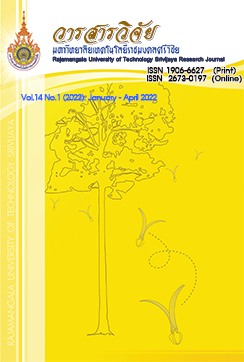Water Permeable Resistance in Concrete Combined with Waterproofing Material Cement of Crystalline Type
Keywords:
cement waterproofing, crystalline, water permeabilityAbstract
The research aims to study water permeable resistance and crystallization of concrete mixed with cement-based waterproofing material. In this study, it demonstrates that the samples merged with waterproofing material result in better water permeable resistance capability under pressure condition than the regular concrete as the control sample. The average numbers of water permeability of the samples and the control one were 3.16 and 7.50 centimeters respectively whereas the thickness of crystalline layers occurring around the samples were 2.50 to 3 centimeters. When crystalline areas were cut, new crystalline areas were rebuilt under relevant water situation. Based on mineral analysis using EDS technique, the results demonstrated that Titanium compound, a transitional metal compound in polymer synthesis reaction, was detected at crystalline area of concrete combinedwith cement-based waterproofing material. This confirmed that concrete blended with waterproofing material generating crystals within concrete. In agreement with chemical compound of cement-based waterproofing material crystallization type, Titanium dioxide compound was internally mixed.
References
Benthia, N. and Mindess, S. 1998. Water Permeability of Cement Paste. Cement and Concrete Research 19(5): 727-736.
BS 188: Part 4. 1970. Methods of Testing Concrete for Strength. British Standard (BS). London, England. Available Source: https://www.techstreet.com, March 25, 2019.
DIN 1048: Teil 5. 1991. Testing Concrete, Testing of Hardened Concrete. German Industrial Standard (DIN), Prüfverfahren für Beton, Jun, Berlin, Germany. Available Source: https://www.beuth.de/de/norm/din-1048-5/1708160, March 20, 2019.
Guangyan, L., Xiaofeng, H., Jiesheng, L., Xiang, J. and Xinya, Z. 2019. Activated Chemicals of Cementitious Capillary Crystalline Waterproofing Materials and Their Self-healing Behavior. Construction and Building Materials 200(1): 36-45.
José, L.G.C., Mercedes, S.M., Pedro, C., Filipe, P. and Fabiano, T. 2019. Improvement of the Concrete Permeability by Using Hydrophilic Blended Additive. General Materials Science 12(15): 1-12.
Kunlong, Z., Xiaohua, Y., Rui, C. and Lixiao, X. 2019. Application of A Capillary Crystalline Material to Enhance Cement Grout for Sealing Tunnel Leakage. Construction and Building Materials 214: 497-505.
Ludirdja, D., Berger, R.L. and Young, J.F. 1989. Simple Method for Measuring Water Permeability of Concrete. ACI Materials Journal 86(5): 433-439.
Mandelkern, L. 1964. Crystalline of Polymers. Mc Graw - Hill, New York.
Michael, C., Zhang, B.H.G. and Jun, X. 2016. A Review on Polymer Crystalline Theories. Crystals Journal 7(1): 1-37.
Mindess, S., Young, J.F. and Darwin, D. 2002. Concrete. 20nd ed. Pearson Education, New Jersey.
Nasiru, Z.M., Ali, K.M., Majid, Z.A.M. and Arezou, S. 2015. Waterproof Performance of Concrete: A Critical Review on Implemented Approaches. Construction and Building Materials 101(1): 80-90.
Vanessa, P., Mirna, C.B., Rudy, G., Marie, F.B., Philippe, M. and Samuel, B. 2016. Polymer-Derived Si-C-Ti Systems: From Titanium Nanoparticle-Filled Polycarbosilanes to Dense Monolithic Multi-Phase Components with High Hardness. Journal of the European Ceramic Society 36(15): 3671-3679.
Wongprachum, W. 2019. The Crystallization of Cement Waterproofing Coated on Concrete Surface. The Journal of Industrial Technology 7(2): 42-50. (in Thai)
Zhao, F.Q., Li, H. and Liu, S.J. 2011. Preparation and Properties of An Environment Friendly Polymer-Modified Waterproof Mortar. Construction and Building Materials 25(5): 2635-2638.
Downloads
Published
How to Cite
Issue
Section
License
Copyright (c) 2022 Rajamangala University of Technology Srivijaya Research Journal

This work is licensed under a Creative Commons Attribution-NonCommercial-NoDerivatives 4.0 International License.
The content and information in the article published in Journal of Rajamangala University of Technology Srivijaya It is the opinion and responsibility of the author of the article. The editorial journals do not need to agree. Or share any responsibility.







